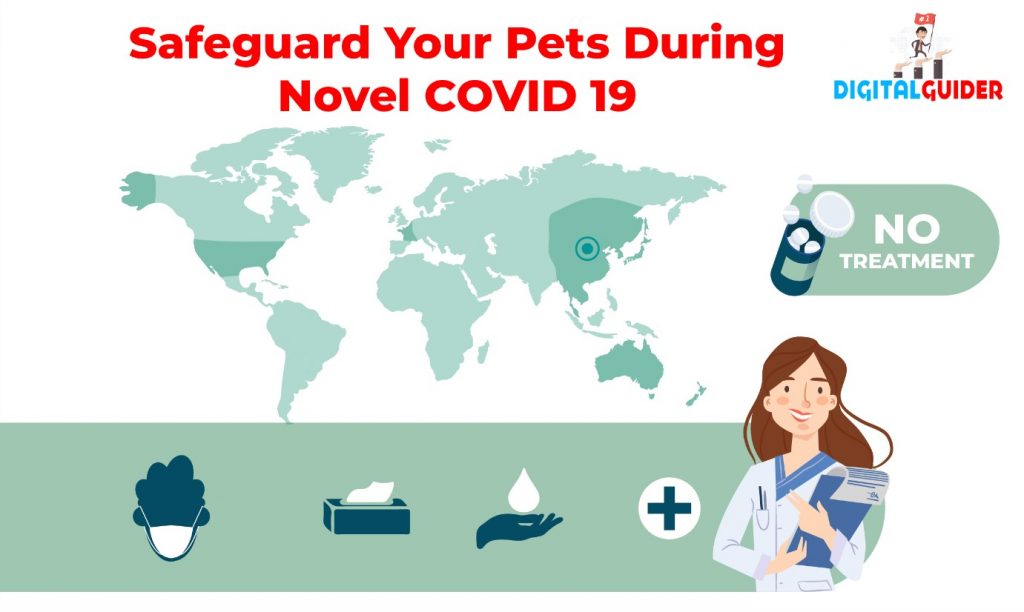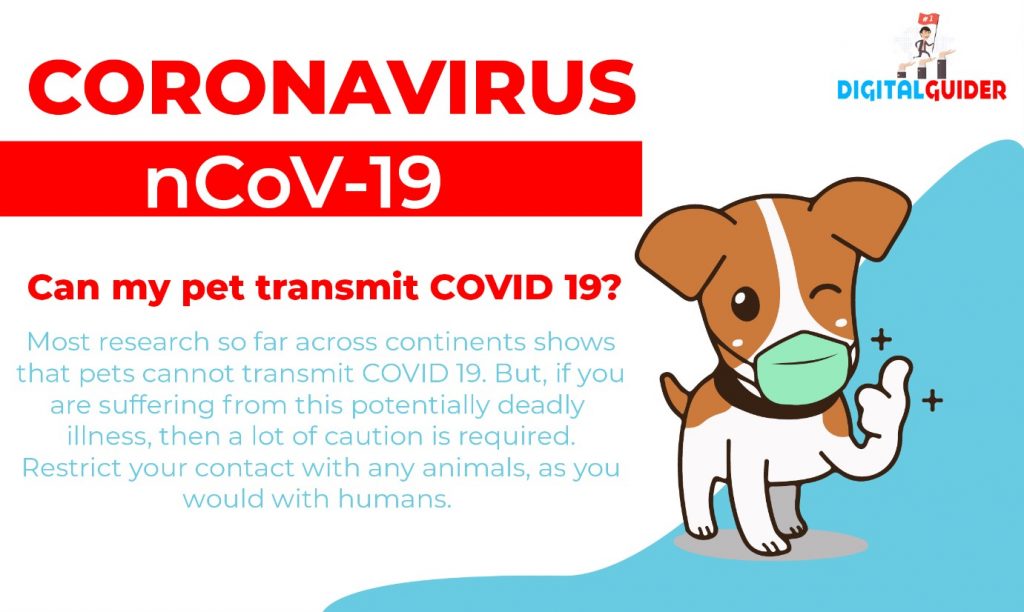Safeguard Your Pets during COVID 19
COVID 19 (Corona Virus Disease 2019) is believed to have started at the Huanan Seafood Market in the central city of Wuhan. Here wild animals are peddled as food, and customers can buy live animals like wolf pups, foxes, rats, and peacocks. Before the market was shut down by Chinese authorities, wildlife sold at this market included crocodiles, giant salamanders, snakes, porcupines, and camel meat. Chinese health officials say the mysterious virus originated from “wild animals at the seafood market.”
Looking at the virus outbreak, some researchers believe the pangolin, which is used in traditional Chinese medicine, started the COVID 19 outbreak via animal-to-human contact. Previous deadly epidemics such as SARS (severe acute respiratory syndrome) have been linked to Chinese consumption of palm civet meat. Similarly, the MERS (Middle East respiratory syndrome) is connected to people who interacted with camels or ate their flesh.
According to recent research, it has been found that horseshoe bats carry the virus. Previous human outbreaks of SARS and MERS originated in bats, passed on the virus to other species like palm civets and camels. When humans interacted with these animals or ate their meat, they were infected with the virus causing respiratory illness.
The Chinese Center for Disease Control and Prevention recently discovered that people affected by COVID-19 have the live virus in their stool. It means that the infection can spread through fecal matter as well as droplets from sneezing and coughing.
Can my pet transmit COVID 19?
For many people, pets are an integral part of their family. For others, they are stress busters or friends. Some people find puppies and kittens adorable and cuddly, but once they cross 6-7 months, they are considered a nuisance by the owners. These are the ones that usually abandon their pets.
Therefore, it is best to state the facts about COVID 19 before you find every park in town with dozens of abandoned dogs and cats competing for food.
Most research so far across continents shows that pets cannot transmit COVID 19. But, if you are suffering from this potentially deadly respiratory illness, then a lot of caution is required. Restrict your contact with any animals, as you would with humans. A healthy household member should take care of the pet, or if that is not a possibility, wear a face mask and wash your hands thoroughly before and after feeding, walking, or interacting with the pet.
Also, keep at least two weeks of pet food in the house, along with any medication and other supplies like kitty litter. Designate an emergency caregiver and share all the relevant information about your pet in a dossier.
Vets are not particularly worried about people contracting COVID 19 through interaction with cats or dogs. According to the American Veterinary Medical Association’s Chief Veterinary Officer Gail Golab, “The virus survives best on smooth surfaces, such as countertops and doorknobs. Porous materials, such as pet fur, tend to absorb and trap pathogens, making it harder to contact them through touch.”

Ethical treatment of pets
Keeping a pet is a life-long commitment; in their 9-15 years of life span, most dogs prove their worthiness to owners through loyalty and friendship despite facing hardships. Some have risked their lives to protect their master. Other pets like cats and birds also grow very attached to their owners and sometimes die of heartbreak when they don’t see them over a long period. Before taking any steps to safeguard your family and friends during these trying times, check if you are ethical. Many dogs that are left at the local pound, are euthanized if no one adopts them.
In Wuhan, authorities are euthanizing animals found in the homes of infected people. Also, during the lockdown in different countries, animals have been left behind in pet stores where they will starve to death if not rescued in time. That is a nightmare for animal lovers, but only local governments can help in situations like this since citizens do not have permission to leave their homes.
Despite the stress and anxiety across the globe due to COVID 19, it is comforting to have a friend like a dog or a cat. According to researchers, playing with your pet gives you a healthier heart. If you find that your dog has a dry nose, this could mean it has a fever, seek advice from a veterinarian, but don’t jump to conclusions and connect everything with the deadly virus.








